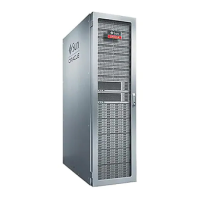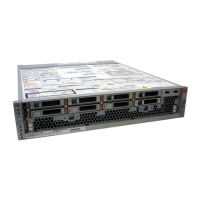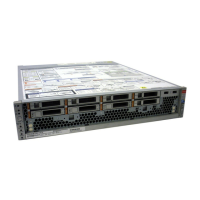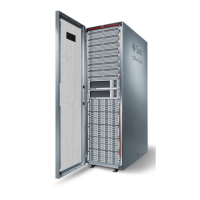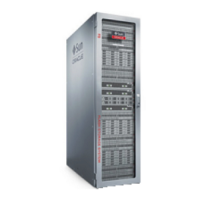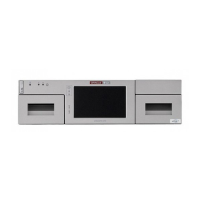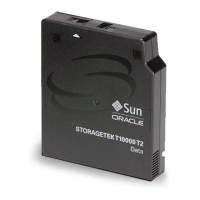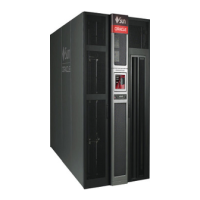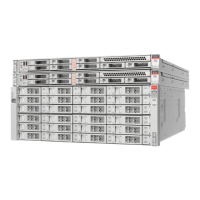Changing a Share Encryption Key (CLI)
Related Topics
■
“Changing a Project Encryption Key (BUI)” on page 568
■
“Deleting an Encryption Key (BUI)” on page 575
■
“Encryption Properties” on page 581
Changing a Share Encryption Key (CLI)
You can change the encryption key associated share at any time, even while it is in use by client
systems. To change a key for a share without changing the parent project, use the following
procedure:
1.
To see a share's current key, navigate to that filesystem or LUN and enter get
keyname.
hostname:shares default> select fs-1
hostname:shares default/fs-1> get keyname
keyname = MyFirstKey
2.
To change the key used for the share, enter set keyname= followed by the new
keyname, and then enter commit.
hostname:shares default/fs-1> set keyname=MySecondKey
keyname = MySecondKey (uncommitted)
hostname: shares default/fs-1> commit.
3.
Verify the new share key by entering get keyname.
shares default/fs-1> get keyname
keyname = MySecondKey
Related Topics
■
“Changing a Project Encryption Key (CLI)” on page 570
■
“Deleting an Encryption Key (CLI)” on page 578
■
“Encryption Properties” on page 581
Backing Up a LOCAL Key (BUI)
Use the following procedure to retrieve the information for a single LOCAL key in order to
back it up.
1.
Navigate to Shares > Encryption > Local.
574 Oracle ZFS Storage Appliance Administration Guide, Release OS8.6.x • September 2016
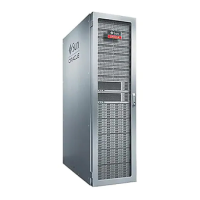
